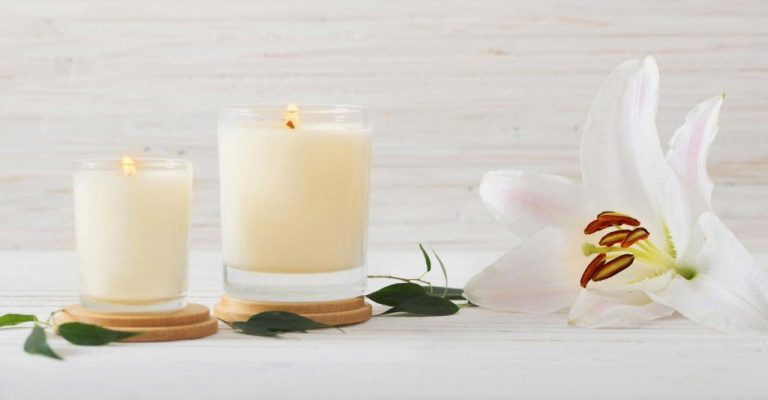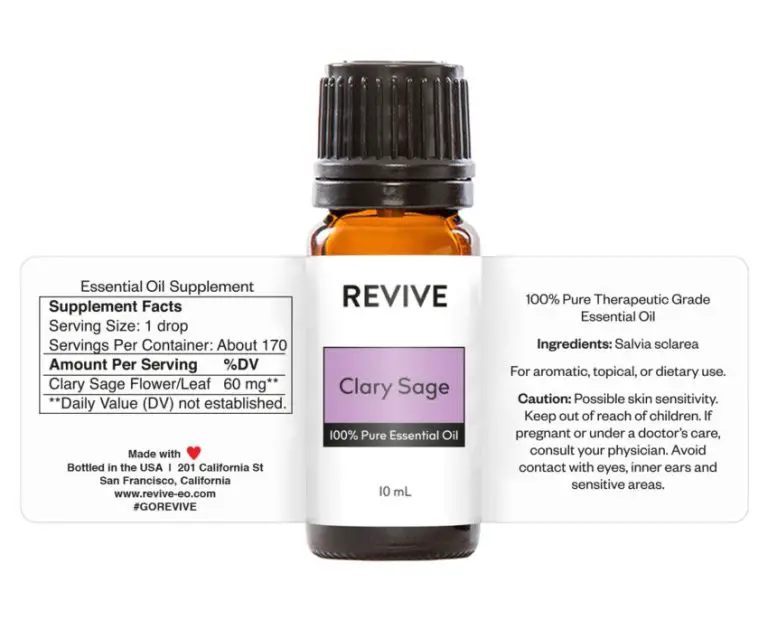Can I Use Cinnamon Essential Oil In Candy?
Candies and sweets flavored with essential oils have become an increasingly popular way to enjoy the health benefits of oils in delicious treats. Cinnamon oil, in particular, is a favorite for its warming flavor and aroma. When used properly, cinnamon oil can provide a tasty and soothing addition to homemade candies.
However, because essential oils are highly concentrated, there are some precautions to take when using cinnamon oil in candy making. Cinnamon oil contains the compound cinnamaldehyde which can be irritating to skin and mucous membranes when used improperly. Understanding correct usage and storage of cinnamon oil is key to safely enjoying its benefits.
What is Cinnamon Essential Oil?
Cinnamon essential oil is extracted from the bark of the cinnamon tree (Cinnamomum verum). Through steam distillation, the aromatic oil is extracted from the bark and leaves of the tree
The main chemical components of cinnamon essential oil are cinnamaldehyde and eugenol. Cinnamaldehyde makes up 50-80% of the oil and gives cinnamon its spicy aroma and flavor. Eugenol comprises 5-15% of the oil and has pain-relieving and anti-inflammatory properties.
Some of the key therapeutic properties of cinnamon essential oil include:
- Antimicrobial – effective against bacteria, fungi and viruses
- Anti-inflammatory – reduces inflammation and swelling
- Antioxidant – protects against cell damage from free radicals
- Analgesic – relieves pain
These therapeutic effects make cinnamon oil useful for applications like dental care, skin care, respiratory support and more.
Benefits of Cinnamon Oil
Cinnamon oil contains powerful antioxidant and anti-inflammatory properties. Research shows cinnamon oil can help reduce oxidative stress and inflammation in the body (source). The compounds cinnamaldehyde, cinnamyl acetate, and cinnamyl alcohol are mainly responsible for its antioxidant effects.
In addition to health benefits, cinnamon oil provides a warm, spicy aroma and flavor. It’s commonly used as a natural flavoring agent in foods, beverages, and candies. The distinctive taste and smell come from the compound cinnamaldehyde (source).
Cinnamon oil also has preservative qualities that help prevent spoilage and foodborne illnesses. Research shows it can inhibit bacterial growth, making it useful for extending the shelf life of foods (source).
Using Cinnamon Oil in Cooking
Cinnamon oil is very concentrated, so only small amounts are needed when cooking or baking. A few drops can replace ground cinnamon to enhance the flavor of breads, desserts, oatmeal, applesauce and more. Cinnamon oil is commonly used in candy making since it provides a wonderful cinnamon burst.
The potency of cinnamon oil allows it to pack a punch of flavor. According to Walmart, “A hard-to-find and highly-concentrated ingredient, Pure Cinnamon Oil is frequently used to make apple butter, candy apples, and cider. You can add it to cakes, cookies, and other goodies for an extra dash of cinnamon” (source).
When substituting ground cinnamon, start with just a drop or two of cinnamon oil in a recipe. You can always add more oil as needed. Too much may result in an overpowering flavor. Olivenation recommends using 1/8 teaspoon cinnamon oil for every 1 teaspoon of ground cinnamon (source).
Cinnamon Oil Candy Recipes
Cinnamon oil adds a delicious flavor and aroma to candy. Here are some recipes to try using cinnamon oil in simple hard candies, caramels, fudge, and gummies:
Simple Hard Candies

These old-fashioned cinnamon hard candies are easy to make at home. Boil sugar, corn syrup, and water to 300°F. Add cinnamon oil and food coloring. Pour into molds and let cool completely before removing from molds (Source).
Cinnamon Caramels
For a chewy cinnamon caramel candy, combine sugar, corn syrup, cream, and butter. Cook to 248°F, add cinnamon oil, then pour into a pan to cool and cut into squares (Source).
Cinnamon Fudge
Make cinnamon fudge by bringing sweetened condensed milk, sugar, butter, and marshmallow creme to a boil. Remove from heat, add cinnamon oil, then beat until thickened and pour into a pan (Source).
Cinnamon Gummies
For homemade cinnamon gummies, bloom gelatin in water, then heat with sweetener. Remove from heat, add cinnamon oil and citric acid. Pour into molds and refrigerate until set.
Safety Precautions
While cinnamon oil has many benefits, it’s important to be aware of potential safety issues when using it:
Cinnamon oil can irritate sensitive skin and mucous membranes, so it should be diluted properly before use. Avoid contact with eyes, lips, and other sensitive areas. One source recommends diluting cinnamon oil with a carrier oil like coconut or jojoba oil in a 1% dilution (1 drop of cinnamon oil per teaspoon of carrier oil) for skin applications.
Cinnamon oil is not recommended for use on children under 2 years old. Parents should exercise caution and consult a doctor before using with older children.
Cinnamon oil should always be stored out of reach of children in a cool, dark place. The bottle should be kept tightly closed.
Pregnant women should avoid ingesting cinnamon oil, as it may stimulate uterine contractions. Those with liver disease should also avoid ingesting cinnamon oil.
Only food-grade cinnamon oil should ever be ingested, and only in very small dilutions. Therapeutic cinnamon oil is not meant to be consumed.
Overall, while cinnamon oil has many benefits, precautions should be taken to use it safely and avoid potential irritation or ingestion in vulnerable populations.
Storing Cinnamon Oil
Proper storage is important for maintaining the quality and potency of cinnamon essential oil. Here are some tips for storing cinnamon oil:
Keep in a cool, dark place – Exposure to light and heat can cause the volatile compounds in cinnamon oil to break down more quickly. Store the oil away from direct sunlight or heat sources like stoves or heating vents. A pantry, cabinet, or closet are ideal places. https://www.youngliving.com/blog/essential-oil-storage-the-basics/
Store in an opaque container – Cinnamon oil should be kept in a darkened glass or plastic bottle to limit light exposure. Dark amber bottles are commonly used. Make sure the container has a tight-fitting lid.
Proper labeling – Clearly label containers with the oil name and date opened. This helps track when the oil was first used.
Shelf life – Unopened cinnamon oil has a shelf life of up to 2 years from the date of production if stored properly. Once opened, it will stay fresh for up to 2 years as well when stored in cool, dark conditions.
Avoid proximity to heat sources and temperature extremes. Storing cinnamon oil in the refrigerator is unnecessary and could cause condensation in the bottle.
Other Cinnamon Oil Uses
Cinnamon oil has many uses beyond cooking and skin care. Here are some other ways to incorporate this warming, spicy oil:
Potpourris and reed diffusers – Add a few drops of cinnamon oil to potpourri or reed diffusers to infuse your home with a cozy cinnamon aroma. The strong scent will help mask unpleasant odors and create a welcoming environment (1).
Add to baked goods – Cinnamon oil can be used to flavor breads, cookies, cakes and other baked goods. Use sparingly and avoid direct contact with the skin when handling (2).
Massage oil – For sore muscles, mix 2-3 drops of cinnamon oil with 1 tablespoon of carrier oil like coconut or jojoba oil. Apply to the affected area. Do not use on sensitive skin (3).
Frequently Asked Questions
What are the most common ways to use cinnamon essential oil?
Cinnamon essential oil is commonly used in aromatherapy, skin care, and household cleaning products. It can be diffused, applied topically when diluted with a carrier oil, or added to cosmetics, soaps, candles, and more. Always dilute cinnamon oil before applying it to skin.
What is a safe dosage of cinnamon oil?
Always dilute cinnamon essential oil before use. As a guideline, try using 1-2 drops of cinnamon oil per 1 teaspoon of carrier oil for adults. Use more caution with children and start with 1 drop diluted in 1 tablespoon of carrier oil. Never ingest cinnamon oil unless under the supervision of a doctor.
Can you substitute cinnamon essential oil for ground cinnamon?
No, cinnamon essential oil and ground cinnamon are not interchangeable. Cinnamon essential oil is extremely concentrated and not meant for consumption. Ground cinnamon can be safely used in cooking and baking recipes.
How should you store cinnamon essential oil?
Store cinnamon essential oil in a cool, dark place away from direct sunlight and heat to help preserve its therapeutic benefits. Keep the bottle tightly sealed and avoid exposing it to air. Properly stored, cinnamon oil can last 1-2 years. Refrigeration can further extend its shelf life.
What other uses does cinnamon oil have?
Other popular uses for cinnamon essential oil include supporting digestion, relieving joint pain and arthritis, boosting cognitive function, promoting healthy blood sugar levels, improving oral health, and providing antioxidant support. It’s also used in perfumes, incense, potpourri, and as an insect repellent.
Conclusion
In summary, cinnamon essential oil can be a great way to add flavor and potential health benefits to homemade candy. With its warm, spicy aroma and flavor, cinnamon oil enhances candy recipes ranging from caramels to chocolate truffles. When used properly and in moderation, it provides a unique twist on classic candies.
However, cinnamon oil is very concentrated and should always be diluted before use. It’s also important to follow storage guidelines to maintain freshness and safety. By using just a few drops per batch of candy, you can enjoy the flavors and potential benefits of cinnamon without overdoing it.
Overall, cinnamon essential oil allows creative candy making while providing enticing flavor and aroma. As long as safety and storage precautions are followed, homemade candies can benefit from this versatile ingredient. The key is proper dilution and moderation to keep any batch of candy balanced and delicious.




